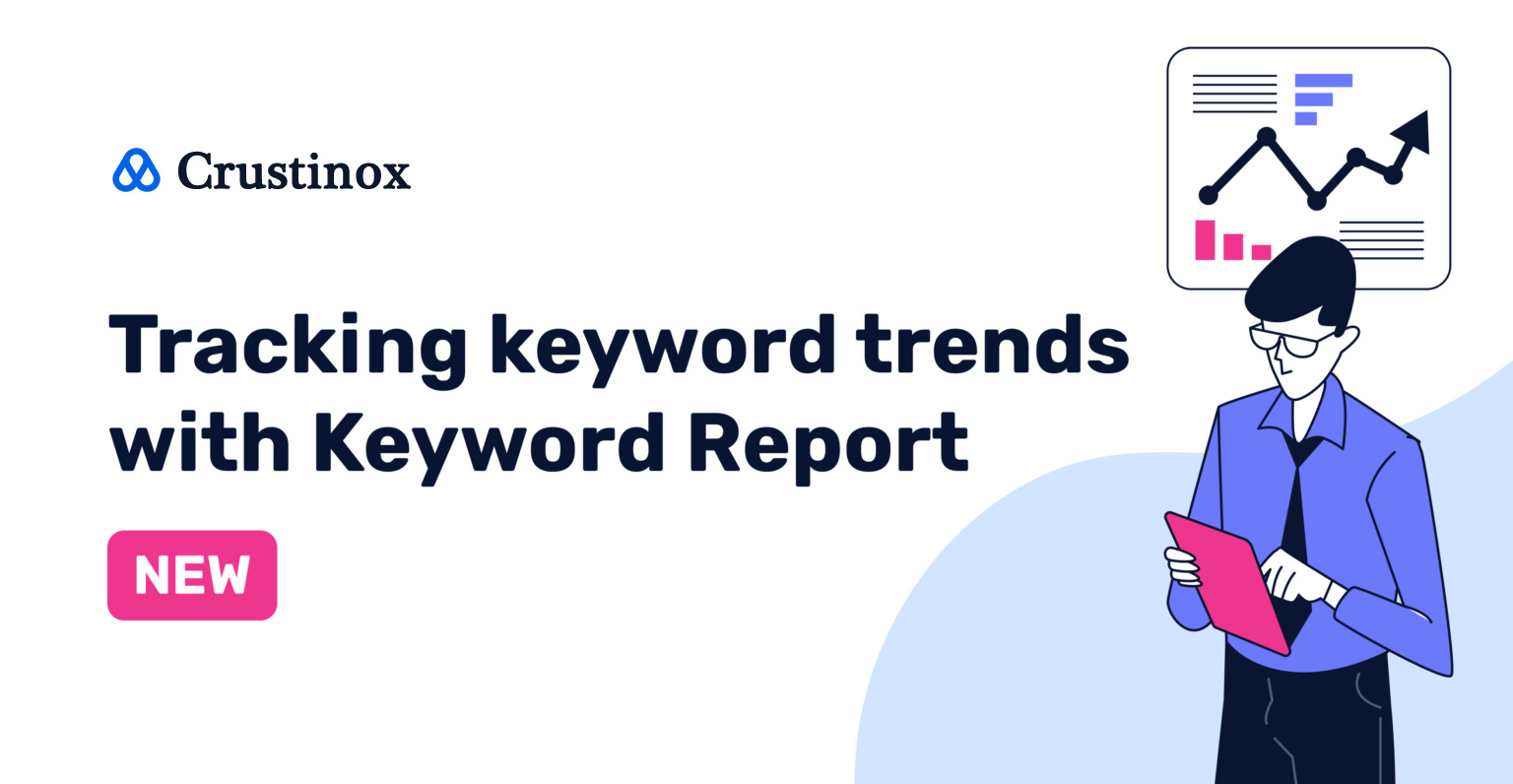Tracking keyword trends with Keyword Report
Tracking the dynamics of mobile app keywords is a never-ending process and part of our ASO strategy. The realities of the market, with its competition and fullness, show us every time that sometimes it is not the coolest product that wins, but the most persistent. And if the idea and its implementation led to the emergence of an excellent application, then the efforts to promote it will definitely pay off, while ignoring ASO is not the best option, no matter how good we are.
A lot has already been said about keywords, but this is the basis and foundation for text optimization, promotion and advertising. So system analysis and research of search queries have already become a routine, but important and mandatory.
Briefly about keywords and indexing
A keyword (search query, key, keyword) is a word or phrase that characterizes the application or its main functions. Users type these words and queries into search to find the application they are interested in. Developers try to embed them in metadata to improve the visibility of the application in search. (see ASO Dictionary).
The infographic explains it even more simply - users search for specific games or apps by name/functionality/essence and receive search results according to the algorithms of the store.
If our application or game is shown in the search results for a specific request, then it is indexed for it. Next, we analyze the quality of this search query, namely, its relevance to our application, how popular the query is among users (how many people enter it into the search bar per day, otherwise known as a traffic indicator), where our application ended up in the search.
We can try to determine all these important characteristics of keywords manually, but no matter how hard we try, the traffic indicator is hidden from us by a foggy veil of store algorithms. Of course we can guess, but guesses in ASO will take us no further than coffee grounds in fortune telling.
What's the result then?
We have a market in which there are more than 5 million applications, there are almost 70% of users who use search to install the application, and there is metadata thanks to which we can organize this meeting in search results. Filling out metadata has already become an art - after all, there are so many keywords, but not so many symbols. But today let's talk not about metadata, but about keywords, their analysis and dynamics.
We have come close to the topic of keyword research, it will give us the opportunity to understand user behavior, market trends and competitor strategies. When we manage search queries, we get:
- increasing app visibility
- influx of organic traffic
- improvement in conversion rate
- being ahead of competitors in search results
- the basis for a more informed and advanced ASO strategy
Keyword Analysis Tools
Our choice of keywords is the difference between an app's success or failure - look at the numbers of 5 million apps on the market. Our application deserves to be at the top of search results, therefore we will pay maximum attention to our search queries, and use analytics tools for more effective methods and results.
The most accurate facts about keywords, their tracking and dynamics are the new Keyword Report tool, although it would be more correct to write that this tool is old, but with the expanded functionality.

Previously, we used this tool for simple analysis - what is happening to our semantic core, how many and which keywords have grown in search results, how many and which ones have fallen. It was also easy to track new indexing and its disappearance. All search queries that came under analysis were in our core, or rather in the Keyword Monitor list.
Now Keyword Report offers us the opportunity not only to track the dynamics of our keywords, but also to compare data over periods - you can select the dates between which positions will be compared, namely:
- Position growth
- Falling positions
- New indexing
- Lost indexing
But this would be too little for such an important tool, and now we move to the second tab - App Keywords Indexing.

As we already know from analytics, App Keywords shows us the complete picture of the indexing of our application. This tool is the most important source of semantics. All keywords for which the app was indexed, with all the necessary characteristics (traffic, popularity, complexity, etc.) are now available to us in terms of position dynamics.
By analyzing the app and its position in the mobile application market, we can now build an excellent chain of tools:
- ASO Dashboard provides an overall understanding, including visibility, indexing situation, downloads and revenue in the selected geo.
- Timeline clearly outlines the time frame for changes. This is especially important when it comes to evaluating a third-party app to understand how their iterations with metadata affected the position of the app. When we update our application, of course, no questions arise.
- Keyword Report will now give us the opportunity to compare the indexing situation before and after our metadata upgrade efforts.
Since we can get a comprehensive picture of the dynamics of keywords as a whole, without reference to our semantic core, this can be an excellent help in working with it. When we observe indexing for words that we do not have in the initial pool of key queries, we can easily add them there directly from the Keyword Report.
Why do we need tracking keyword trends?
Effective keyword research for an ASO strategy involves finding a balance between relevance and competition. The goal: highly relevant keywords increase the likelihood of attracting interested users, but excessive competition for such keywords can be disadvantageous, especially for new or little-known applications. Therefore, our task is to find keywords with the optimal balance of relevance and reachability. And this needs to be done constantly - the market does not stand still, key queries change, something falls out, something reaches the Top. It is the constant analysis of the dynamics of what is happening with our indexing and what is happening with the competitor’s indexing that helps us keep our finger on the pulse.
Targeting narrower categories, but more likely users, is an operation that requires careful research and will only lead to success with an integrated approach. A good example is geographic targeting - if we target our application to a specific location. Thus, we need to understand whether there is a chance for indexing and popularity of narrower queries - a paradigm shift from “tourist routes” to “Nebraska tourism routes”. If our direct competitor was able to pull this off, then we should try too. Analyzing the dynamics of indexation of competitors' keywords will not allow us to miss such chances.
Assessing the current situation of the app - even if we haven’t changed anything in our metadata, this does not at all mean a stable situation with visibility and indexing. Competitors are not asleep and are promoting keywords, users suddenly became interested in walking with wolves, not bears after the sensational The Revenant with DiCaprio, the market demonstrated seasonal mood and changed the popularity of queries. And last but not least - the internal algorithms of stores suddenly begin to storm and the search results change their polarity. A tool that will allow us to quickly assess the dynamics of our own and our competitors, helps us draw conclusions for further actions. If something changes dramatically for everyone, it’s one story, if something specifically happens to us, it’s a different one then.








